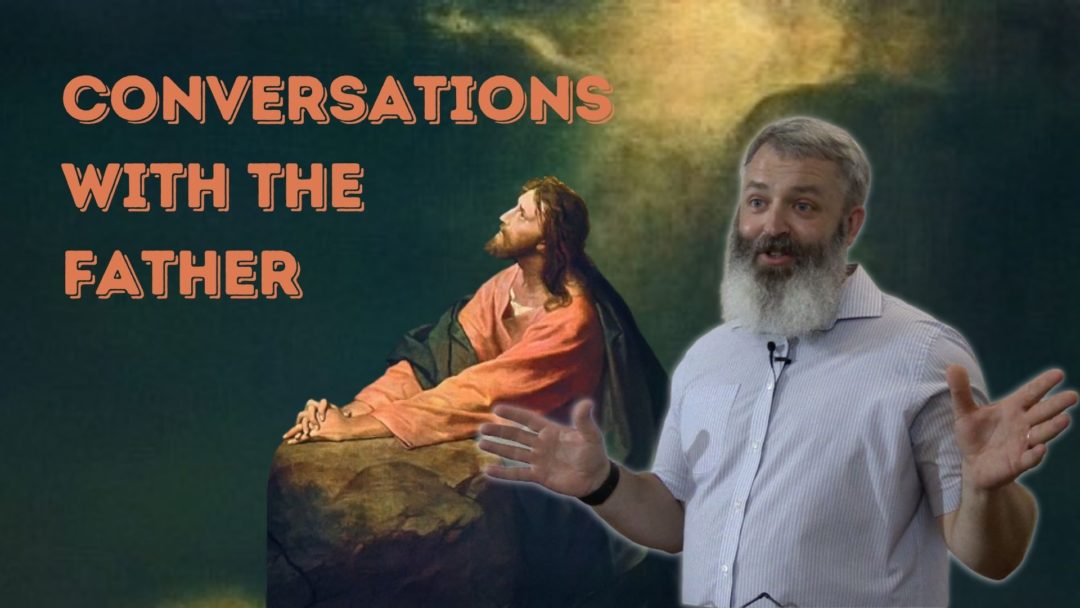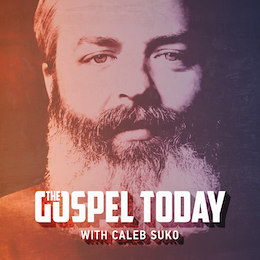
We just returned from two months in the US. Whenever we go back to the US I find that I have to adjust to the way of life there. I can’t always put my finger on it but life just feels different in a different country, so I have to change some of my expectations when we go back to the US. What I didn’t realize years ago was that living in Ukraine was changing me, it wasn’t just changing the way I lived or thought but it was also changing the way I spoke. I realized this when people in the US began telling me that I seemed to have a slight accent in English. “What do you mean?” I would ask with surprise. “I grew up here!” At first I didn’t believe it but later I came to accept it after a number of people told me they sensed an accent.
Podcast: Play in new window | Download (Duration: 50:03 — 35.5MB) | Embed
Subscribe: Apple Podcasts | Google Podcasts | Stitcher | Email | RSS
So what was it? Why did my speech change? All I can say is that conversations are powerful and they can change us, they can change the way we think and they can change the way we speak. All that time talking with Ukrainians and others who spoke English with a different accent than mine changed the way I spoke English.
As you have studied the conversations of Jesus this summer I pray that they have changed you, that they have tweaked your accent, that your faith, your life, and your speech look a little more like Jesus.
Today I want to point your attention to another type of conversation that we see in the life of Jesus. Thankfully, the gospels record for us many of Jesus’ conversations with God the Father. There is no better way for us to see the heart of Jesus and than to have an intimate look at his conversations with God the Father.
1. Jesus made private prayer a priority
Mat 14:23
23 And having sent the people away, He went up the mountain to pray in private; and in the evening he remained there alone.
Jesus knew that ministry demanded much of him, spiritually and physically. Even though the people were constantly following him, constantly asking him to perform miracles he took time to get away from it all and spend time with his Heavenly Father. Jesus spent much time in private prayer. There are at least six times when we see Jesus leaving the crowds in order to spend time in prayer.
- Mar 1:35 Very early in the morning, while it was still dark, Jesus got up, left the house and went off to a solitary place, where he prayed.
- Mar 6:46 After leaving them, he went up on a mountainside to pray.
- Luk 4:42 At daybreak, Jesus went out to a solitary place. The people were looking for him and when they came to where he was, they tried to keep him from leaving them.
- Luk 6:12 One of those days Jesus went out to a mountainside to pray, and spent the night praying to God.
- Luk 22:41 He withdrew about a stone’s throw beyond them, knelt down and prayed,
What an amazing example Jesus is for us! Today each of us has a crowd that is constantly following us. That crowd can be found in our social networks, at our work, in our computers, in our homework, and a thousand other places. It’s hard to turn our world off but it is necessary. God wants us to come to him in the quiet private hours of our life. He wants to hear our voice individually, apart from the clatter of this world. God knows that our spirits need quiet conversations with our Heavenly Father.
Jesus lived more in private conversations with God the Father than he did in public discourse and ministry. The temptation today is to live almost completely in the public. To do everything for everyone one or at least to make an impression and be seen by everyone. Jesus’ life was like an iceberg, his public ministry was only a small manifestation of his private spiritual life. Jesus lived an “upside” down life. We can see this come out clearly in his teaching on prayer.
Mat 6:6
But when you pray, go into your room, close the door and pray to your Father, who is unseen. Then your Father, who sees what is done in secret, will reward you.
Unseen prayer is the type of prayer that God sees. Of course this doesn’t mean that we can’t pray in public, we can. However, there is an added danger in public. We can easily pray for the ears of others. Sadly, many of us are skilled and praying “theological,” “holy,” and “reverent” prayers in public, yet in private these same prayers are absent.
Why is private prayer so important?
- It tends to remove pretense (We can fool others but we can’t fool God)
- It focuses the heart
- It allows us to reflect on our own souls
- It builds a strong relationship
- Imagine if I only spoke to my wife in public!
- It builds a foundation for spiritual success.
Why is it that there is so much apparent religious working, and yet so little result in positive conversions to God — so many sermons, and so few souls saved — so much machinery, and so little effect produced — so much running here and there, and yet so few brought to Christ? Why is all this? The reply is short and simple. There is not enough private prayer.The cause of Christ does not need less working, but it does need among the workers more praying. Let us each examine ourselves, and amend our ways. The most successful workmen in the Lord’s vineyard, are those who are like their Master, often and much upon their knees.
~ J.C. Ryle
If Jesus needed prayer, then we need it more. Unfortunately, many people today live in silence to God. Many people do not know the embrace of a Good Father in times of prayer. Many Christians live day after day lacking spiritual strength and hope and it’s all because they lack those much needed conversations with God who loves them and is waiting to hear from them. Many live in icy silence and they themselves do not know and do not understand why they experience loneliness, feelings of abandonment, and coldness in their souls. Many of us are stubbornly trying to fix on our own what only God the Father can fix. Like robots we go about our daily task mechanically. We get the job done but we have lost the joy because we have lost the relationship. We perform our tasks, we manage to get by, we keep our heads down and our mouth closed.
Too many of us have forgotten that God does not want our theatrical performance, he wants our simple, sincere, and private prayers!
Why don’t we make prayer a priority?
- We don’t really believe in it.
- It’s easier to just give into the pressures of those around us.
- We live in an always on world.
- Satan is a master distracter.
What can we do to make prayer a priority?
- Plan for prayer
- Set aside distractions
- Find a prayer partner
- Find a prayer place
- Practice Biblical meditation
- Write your prayers
It’s time for us to have a heart-to-heart talk with our Father, he’s been waiting
2. Jesus prayed often
Luk 5:16 But Jesus often withdrew to lonely places and prayed.
Besides “The Lord’s Prayer” there are 6 of Christ’s prayers recorded in the Gospels
- He praised the Father for the fact that He “hid these things from the wise and learned and revealed them to children” (Mat 11.25–26)
- He prayed before he raised Lazarus (John 11: 41–42)
- He prayed, “Father! glorify your name” after the Triumphal Entry into Jerusalem (John 12:28)
- He prayed for himself, for his disciples and for us (John 17)
- He prayed all night before his arrest (Luke 22.41–42)
- He prayed on the cross “Father forgive them, for they do not know what they are doing.” (Luke 23.34,46)
More occasions when Christ prayed
- When he was baptism (Luke 3:21)
- He often snuck away from people to pray (Luke 5:16)
- In the morning (Mark 1:35)
- Before he walked on the water (Mat.14: 23, Mar 6:46, Joa 6:15)
- Before he called the apostles (Luke 6:12)
- Before Peter’s confession (Luke 9:18)
- On the mountain during the “Transfiguration” (Luke 9:29)
- Before he taught his disciples pray (Lu 11: 1)
- He prayed for Peter’s faith (Lu 22:32)
- He blessed God before eating. (Mar 6.41)
Jesus prayed at different times
- Before eating
- Before moments of testing
- After difficult times in ministry
- At night and in the morning
- Alone and with the disciples
Jesus always had time for prayer and it seems that…
- the more people demanded his time and attention,
- the more he ministered and traveled,
- the more the Pharisees persecuted him,
- the more time he had for prayer.
Without question prayer saturated every aspect of Jesus’ life. Prayer wasn’t just a religious tradition for him, rather you get that idea, that he simply lived a life of prayer. Prayer just seemed to seep from every corner of his life!
Let me ask you, how often do you talk with your mother or father? How often do you talk with your siblings? What about your spouse? These are all people that we generally talk with often, why? Because we are close to them, we love them and they love us. We are interested and concerned about their lives. In fact, I would say that it’s difficult if not impossible to truly love someone, care for them, and be concerned for them without ever talking with them.
The first time I came to Ukraine was in 1994. It was in the age before WhatsApp, email, or even the internet. So how did we communicate? We made phone calls, expensive phone calls! That first trip we called back to the US several times. We had so much to say, so much we wanted to share that we didn’t pay much attention to how long we were talking. In about three weeks time we racked up a bill of around $300! That was the price of conversing with those whom we loved!
What is the price of prayer? It costs you and me nothing but it cost Jesus everything! Prayer is possible Because Jesus payed the bill on the cross!
Heb 10:19–22
19 Therefore, brothers and sisters, since we have confidence to enter the Most Holy Place by the blood of Jesus, 20 by a new and living way opened for us through the curtain, that is, his body, 21 and since we have a great priest over the house of God, 22 let us draw near to God with a sincere heart and with the full assurance that faith brings, having our hearts sprinkled to cleanse us from a guilty conscience and having our bodies washed with pure water.
Prayer is really nothing more than coming into the throne room of God. Like Queen Esther in the Old Testament who came into Artaxerxes throne room and he extended his scepter to her and spared her life. So also God the Father extends his scepter to all believers in Jesus Christ. He allows us into his throne room whenever, and wherever. What a great privilege that many of us waste daily.
Frequent prayer is the unique privilege of God’s chosen sons and daughters. Let us not squander this privilege. The Father’s dining table is open to you and to me. Let us go there frequently to refresh our souls. Let us go there for needed spiritual rest. Let us go there to hear the Father’s voice in the quiet hour. Let us go there to bask in the love of a Father who wants to hear our voice, who is interested in our life, and wants to give us the help we need! Let us go to the Father’s table in private thanksgiving, in personal praise, and in peaceful contemplation.
3. Jesus used his prayers to teach us
Jesus knew that his prayers would be recorded for the sake of his disciples and for us. His prayers teach us by their nature and by their content.
Mat 6:7–9
7 And when you pray, do not keep on babbling like pagans, for they think they will be heard because of their many words. 8 Do not be like them, for your Father knows what you need before you ask him. 9 “This, then, is how you should pray: “ ‘Our Father in heaven, hallowed be your name,
- They teach prayer as the natural way of life for a Christian
For Jesus, prayer was not a traditional ceremony, it was not reciting words from a book, nor was it a magic spell.It was his way of life. It was a natural desire of his heart. It was closeness with the Father, it was a heart-to-heart talk. For Jesus, prayer was simply a personal relationship with God the Father. Jesus did not know what ministry without prayer was, he did not know what life without prayer was, he was never silent in his relationship with the Father. He constantly felt the need to speak to Him.
When a young couple is in love, no one needs to force them to communicate with each other. When old friends meet, it is impossible to stop their conversation. When children need help, they cry out to their father. These are all natural conversations that don’t need to be forced. So also should be our prayers.
- They teach prayer as a function of the mind and the heart.
Jesus’ prayers came from his heart. They were genuine, they were rich in meaning and not superficial. They were real conversations and not something he did to “check off the boxes”
An example of the heart of Jesus was his prayers in the garden before his crucifixion. He honestly cried out to the Father in his pain and grief.
We must pray truth with an honest and sincere heart. God doesn’t want your impressive theological vocabulary, instead he wants to hear your heart. Like the psalmists who often struggled with difficulties and expressed this in their prayers, so God wants us to cry out to him.
- They teach prayer as a means of spiritual rest and rejuvenation.
Jesus didn’t browse social media to relax, he didn’t watch movies to relax, he didn’t go out to eat to relax, instead he spent time with God the Father in prayer. This is a lesson that we need to learn more than ever. Too many of us are emotionally, physically, and spiritually drained because we have failed to go to the refreshing springs of prayer in our personal life.
Questions to ask ourselves
- Why must I make private prayer a priority in my life?
- In what ways does my prayer life fail to reflect Jesus’ prayer life? How can I improve it?
- What barriers are keeping me from a healthy prayer life?
- What can I do to establish healthy private prayer patterns in my life this week?
Podcast: Play in new window | Download (Duration: 50:03 — 35.5MB) | Embed
Subscribe: Apple Podcasts | Google Podcasts | Stitcher | Email | RSS










